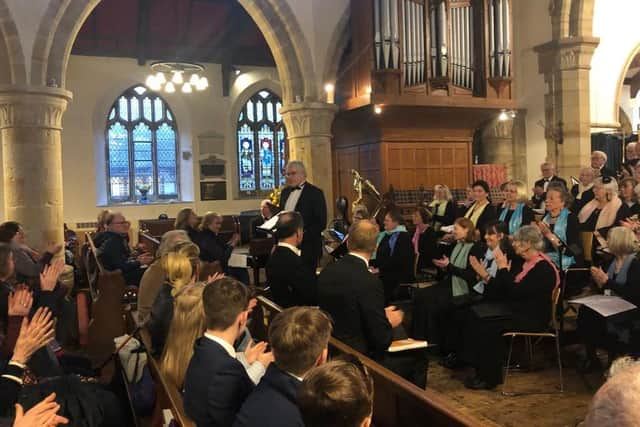Test the Big Bang theory! Battle Choral Society sing The Creation this Saturday, 7.30. St Mary's
and live on Freeview channel 276
Haydn’s music was enjoyed and celebrated throughout Europe, perhaps especially in England where he had two long stays in London, enjoying performances, composing and being inspired by the music he heard, as he was by hearing Handel’s Messiah and seeing its rapturous reception. He was a very well-established composer by then but he had not written a choral work of the standing and grandeur of Handel’s masterpiece.
This became his ambition and in 1796 he started to work on The Creation, which he only completed 1798, when he was sixty-six, with its first performance the following year. It was an instant success and so it has continued ever since.
Advertisement
Hide AdAdvertisement
Hide AdIt covers the first seven days of creation, describing what God did each day. The words are taken mostly from Genesis, the first book in the Bible, with others from the Book of Psalms and Milton’s Paradise Lost. The score was published in 1800 in both English and German, apparently the first score ever to be printed in two languages, one written above the other on each page. We shall be singing it in English. He went on to write another oratorio, The Seasons, very lovely but not sung so much in recent times.


The Creation bursts with energy, full of beautiful melodies, glorious choruses, lyrical arias and always infused with joy and wonder but with moments of humour also. It is almost theatrical, and this is reflected in the way our presentation has been designed.
Haydn died in 1809, just after Napoleon conquered Vienna. Such was the love and respect in which he was held that Napoleon ordered a protective guard around his house. Four days later a French officer visited him and sang to him, very beautifully, an aria from The Creation, just five days before his death.